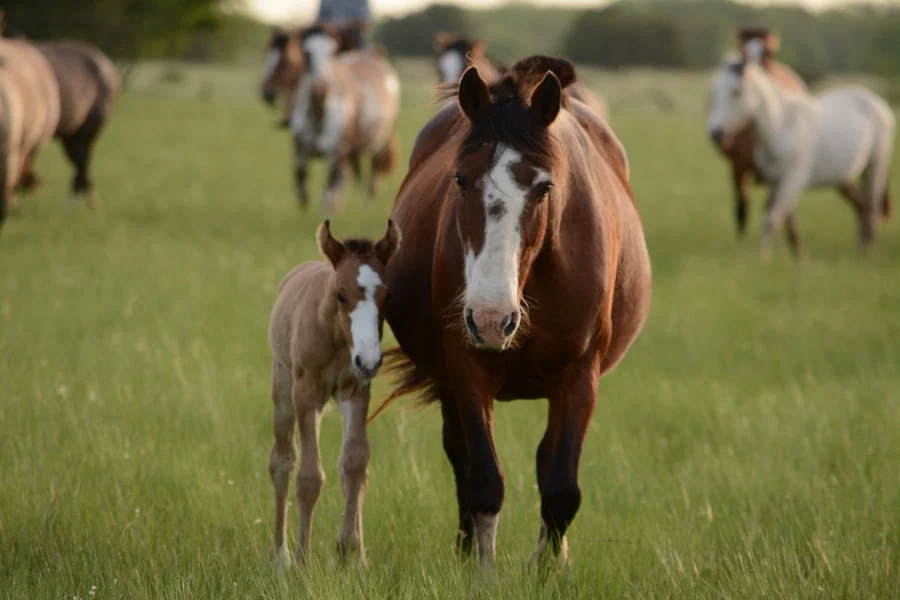Horse boarding refers to the practice of keeping horses in a facility specifically designed for their care and management. Horse owners often choose to board their horses for various reasons, such as lack of space or resources at home, the need for specialized care, or the desire to provide their horses with socialization and interaction opportunities. Horse boarding facilities offer a range of services, including stabling, feeding, grooming, exercise, and veterinary care.
Horse boarding is important for horse owners because it provides a safe and controlled environment for their horses to live in. Boarding facilities are equipped with the necessary infrastructure and amenities to ensure the well-being and comfort of the horses. They have trained staff who can provide daily care and maintenance, monitor the horses’ health, and address any issues that may arise. Additionally, boarding facilities often offer opportunities for socialization and interaction with other horses, which is essential for a horse’s mental and emotional well-being.
Choosing the Right Horse Boarding Facility: Factors to Consider
When choosing a horse boarding facility, there are several factors that horse owners should consider to ensure that they are making the right choice for their horse’s needs.
Location and accessibility: The location of the boarding facility should be convenient for the horse owner to visit regularly. It should be easily accessible by road and have adequate parking facilities. The proximity to veterinary clinics and other equine services is also important in case of emergencies.
Facility amenities: The facility should have well-maintained stables or pastures with adequate space for each horse. It should also have clean water sources, proper fencing, and safe turnout areas. Other amenities such as riding arenas, trails, wash racks, and tack rooms may also be important depending on the owner’s needs.
Staff qualifications and experience: The staff at the boarding facility should have experience and knowledge in horse care and management. They should be trained in handling horses, feeding, grooming, and basic first aid. It is also important to inquire about the staff-to-horse ratio to ensure that each horse receives adequate attention and care.
Safety and security measures: The facility should have safety measures in place to prevent accidents and injuries. This includes proper fencing, well-maintained facilities, fire prevention systems, and emergency evacuation plans. It is also important to inquire about the facility’s security measures to ensure the safety of the horses.
Cost and payment options: The cost of boarding can vary depending on the location, amenities, and services provided. Horse owners should consider their budget and compare prices among different facilities. It is also important to inquire about payment options and any additional fees or charges that may apply.
Understanding Horse Boarding Agreements: Key Terms and Conditions
Before boarding a horse at a facility, it is important for horse owners to understand the terms and conditions of the boarding agreement. This includes the type of boarding agreement, common terms and conditions, liability and insurance considerations.
Types of boarding agreements: There are different types of boarding agreements, including full board, partial board, and self-care board. Full board typically includes all aspects of horse care, such as feeding, grooming, turnout, and stall cleaning. Partial board may include some services but require the owner to provide certain aspects of care. Self-care board requires the owner to provide all aspects of care themselves.
Common terms and conditions: The boarding agreement should outline the responsibilities of both the facility and the horse owner. This includes details about feeding schedules, turnout options, stall cleaning frequency, veterinary care arrangements, and any additional services or fees. It is important for horse owners to carefully read and understand these terms before signing the agreement.
Liability and insurance considerations: The boarding agreement should clearly state the liability of both parties in case of accidents or injuries. It is important for horse owners to inquire about the facility’s insurance coverage and whether they require the owner to have their own insurance. It is also important to understand any waiver or release forms that may be required.
Preparing Your Horse for Boarding: Health and Safety Considerations
Before boarding a horse, there are several health and safety considerations that horse owners should take into account to ensure a smooth transition and a positive boarding experience.
Vaccinations and health checks: It is important to ensure that your horse is up to date on all vaccinations and health checks before boarding. This includes vaccinations for diseases such as tetanus, influenza, and West Nile virus. It is also important to have your horse’s teeth checked and floated if necessary, as well as deworming and hoof care.
Transportation arrangements: If you are transporting your horse to the boarding facility, it is important to make proper arrangements. This includes ensuring that the trailer is in good condition, properly hitched, and equipped with adequate bedding and ventilation. It is also important to plan for rest stops and provide water and hay during the journey.
Packing for your horse’s stay: When packing for your horse’s stay at the boarding facility, it is important to include all necessary items. This includes feed, hay, supplements, medications, grooming tools, blankets, and any other items that your horse may need. It is also important to label all items with your horse’s name.
Emergency contact information: Before boarding your horse, it is important to provide the facility with emergency contact information. This includes your contact information, as well as the contact information for your veterinarian and any other emergency contacts. It is also important to provide any relevant medical history or special instructions for your horse.
Transportation and Arrival: Making a Smooth Transition
Transporting a horse can be a stressful experience for both the horse owner and the horse. However, there are several tips that can help make the journey and arrival at the boarding facility as smooth as possible.
Tips for transporting your horse: When transporting your horse, it is important to ensure that the trailer is properly hitched and in good condition. It is also important to provide adequate bedding and ventilation in the trailer. It is recommended to make frequent rest stops to allow your horse to stretch its legs and provide water and hay.
Arrival procedures: When you arrive at the boarding facility, it is important to follow the facility’s arrival procedures. This may include checking in at the office, unloading your horse in a designated area, and providing any necessary paperwork or information. It is also important to introduce yourself to the staff and ask any questions or address any concerns you may have.
Introducing your horse to the new environment: When introducing your horse to the new environment, it is important to do so gradually. Start by allowing your horse to explore its stall or pasture and become familiar with its surroundings. It is also important to introduce your horse to any other horses in a controlled manner, such as over a fence or during supervised turnout.
Settling In: Creating a Comfortable Environment for Your Horse

Creating a comfortable environment for your horse is essential for its well-being and happiness while boarding. This includes setting up the stall or pasture, arranging bedding and feeding, managing water and waste, and considering climate control.
Stall and pasture setup: The stall or pasture should be set up in a way that provides comfort and safety for your horse. This includes ensuring that there are no sharp edges or objects that could cause injury. The stall should be adequately sized for your horse to move around comfortably, with proper ventilation and natural light.
Bedding and feeding arrangements: The bedding in the stall should be clean, dry, and comfortable for your horse. This may include materials such as straw, shavings, or sawdust. The feeding arrangements should be discussed with the facility staff and should include the type and amount of feed, as well as any supplements or medications that your horse may require.
Water and waste management: It is important to ensure that your horse has access to clean and fresh water at all times. The water source should be regularly checked and cleaned to prevent contamination. Waste management is also important to maintain a clean and healthy environment. This includes regular stall cleaning and proper disposal of manure.
Climate control considerations: Depending on the climate in your area, it may be necessary to consider climate control measures for your horse’s comfort. This may include fans or misters in the summer, or heaters or blankets in the winter. It is important to discuss these options with the facility staff and ensure that they are properly implemented.
Daily Care and Maintenance: Feeding, Grooming, and Exercise
Daily care and maintenance are essential for the health and well-being of your horse while boarding. This includes feeding schedules and requirements, grooming and hygiene practices, exercise and turnout options, and monitoring your horse’s behavior and health.
Feeding schedules and requirements: The facility staff should provide a feeding schedule that meets your horse’s nutritional needs. This may include specific types of feed, hay, or supplements. It is important to communicate any dietary restrictions or preferences for your horse. It is also important to ensure that your horse has access to clean water at all times.
Grooming and hygiene practices: Regular grooming is important for maintaining your horse’s coat, skin, and overall health. This includes brushing, bathing, mane and tail care, hoof care, and regular inspections for any signs of injury or illness. It is important to communicate any specific grooming preferences or requirements for your horse.
Exercise and turnout options: Regular exercise is important for keeping your horse fit and healthy while boarding. The facility should provide turnout options that allow your horse to move around freely and socialize with other horses. It is important to discuss your horse’s exercise and turnout needs with the facility staff and ensure that they are met.
Monitoring your horse’s behavior and health: It is important to monitor your horse’s behavior and health on a daily basis. This includes observing their eating and drinking habits, their energy levels, and any changes in behavior or appearance. It is important to communicate any concerns or observations to the facility staff and seek veterinary care if necessary.
Socialization and Interaction: Opportunities for Your Horse to Thrive
Socialization and interaction are important for a horse’s mental and emotional well-being while boarding. This includes turnout and pasture options, group activities and events, training and riding opportunities, and human interaction and bonding.
Turnout and pasture options: Turnout options should be provided to allow your horse to socialize with other horses and move around freely. This may include individual turnout or group turnout, depending on your horse’s needs and temperament. The facility should have safe and well-maintained pastures or paddocks for this purpose.
Group activities and events: Some boarding facilities offer group activities and events for horses and their owners. This may include trail rides, clinics, shows, or social gatherings. These activities provide opportunities for your horse to interact with other horses and for you to meet other horse owners.
Training and riding opportunities: Some boarding facilities offer training or riding services for horses. This may include lessons, training sessions, or exercise programs. These opportunities allow your horse to receive professional training or exercise while boarding.
Human interaction and bonding: It is important for your horse to have regular human interaction while boarding. This includes spending time with your horse, grooming, hand-walking, or simply observing their behavior. These interactions help build trust and strengthen the bond between you and your horse.
Monitoring Your Horse’s Health: Signs to Watch for and When to Seek Veterinary Care
Monitoring your horse’s health is essential while boarding to ensure early detection and treatment of any health issues. This includes being aware of common health issues and symptoms, monitoring your horse’s vital signs, knowing when to seek veterinary care, and understanding emergency procedures and protocols.
Common health issues and symptoms: It is important to be aware of common health issues that horses may experience while boarding. This includes colic, lameness, respiratory infections, skin conditions, and dental issues. It is important to familiarize yourself with the symptoms of these conditions and be able to recognize them in your horse.
Monitoring your horse’s vital signs: Regularly monitoring your horse’s vital signs can help detect any changes or abnormalities. This includes checking their temperature, pulse rate, respiration rate, and gut sounds. It is important to know what is normal for your horse and seek veterinary care if any abnormalities are observed.
When to seek veterinary care: It is important to know when to seek veterinary care for your horse. This includes any signs of illness or injury, such as loss of appetite, lethargy, lameness, difficulty breathing, or changes in behavior. It is also important to follow the facility’s protocols for reporting any health concerns or emergencies.
Emergency procedures and protocols: It is important to familiarize yourself with the facility’s emergency procedures and protocols. This includes knowing who to contact in case of an emergency, where the nearest veterinary clinic is located, and what steps to take in case of an injury or illness. It is also important to have emergency contact information readily available.
Departure and Follow-up: Ending Your Horse Boarding Experience on a Positive Note
When it is time to end your horse boarding experience, it is important to follow proper departure procedures and maintain open communication with the facility staff. This includes departure procedures and arrangements, providing feedback and communication with the facility staff, follow-up care and maintenance, and planning for future boarding needs.
Departure procedures and arrangements: Before leaving the boarding facility, it is important to follow the facility’s departure procedures. This may include checking out at the office, settling any outstanding fees or charges, and ensuring that all personal belongings are packed and ready to go. It is also important to inform the facility staff of your departure date and time.
Feedback and communication with the facility staff: Providing feedback to the facility staff is important for improving their services and addressing any concerns or issues that may have arisen during your horse’s stay. It is important to communicate any positive experiences or suggestions for improvement. This can be done through written feedback, phone calls, or in-person meetings.
Follow-up care and maintenance: After leaving the boarding facility, it is important to continue providing proper care and maintenance for your horse. This includes following any veterinary recommendations or treatment plans, maintaining regular grooming and exercise routines, and monitoring your horse’s behavior and health.
Planning for future boarding needs: If you anticipate needing boarding services in the future, it is important to plan ahead. This includes researching and visiting potential facilities, discussing your horse’s needs with the facility staff, and making arrangements well in advance. It is also important to maintain open communication with the facility staff and keep them updated on any changes or updates regarding your horse’s care.
Conclusion:
Horse boarding is an important aspect of horse ownership, providing a safe and controlled environment for horses to live in. Choosing the right boarding facility and understanding the terms and conditions of the boarding agreement are crucial for ensuring a positive experience for both horse owners and their horses. When selecting a boarding facility, it is important to consider factors such as the quality of care provided, the amenities offered, and the proximity to veterinary services and riding trails. Additionally, understanding the terms and conditions of the boarding agreement is essential to avoid any misunderstandings or conflicts in the future. This includes knowing the cost of board, what services are included, and any additional fees or requirements. By carefully selecting a boarding facility and thoroughly reviewing the boarding agreement, horse owners can ensure that their horses receive the best possible care and have a comfortable living environment.
If you’re interested in learning more about the horse boarding process, you may also want to check out this informative article on Liv Stables’ website: Horse Boarding in Ontario: Things to Know. This article provides valuable insights into the essential factors to consider when boarding your horse, including facility amenities, feeding programs, and turnout options. It’s a must-read for anyone looking for a reliable and comfortable boarding experience for their equine companion.
FAQs
What is horse boarding?
Horse boarding is the practice of providing a place for horses to live and be cared for by someone other than their owner.
What are the different types of horse boarding?
There are several types of horse boarding, including full board, partial board, self-care board, and pasture board.
What is full board?
Full board is when the horse owner pays a fee for the horse to be fully taken care of, including feed, water, stall cleaning, and turnout.
What is partial board?
Partial board is when the horse owner pays a fee for some of the horse’s care, such as feed and stall cleaning, but is responsible for other aspects, such as turnout.
What is self-care board?
Self-care board is when the horse owner is responsible for all aspects of the horse’s care, including feeding, stall cleaning, and turnout.
What is pasture board?
Pasture board is when the horse lives in a pasture with other horses and is responsible for its own food and water.
What should I look for in a horse boarding facility?
When looking for a horse boarding facility, it is important to consider factors such as the quality of care provided, the safety of the facility, the availability of amenities, and the cost.
What should I expect from a horse boarding contract?
A horse boarding contract should outline the terms of the agreement between the horse owner and the boarding facility, including the cost, the services provided, and any rules or regulations that must be followed.

